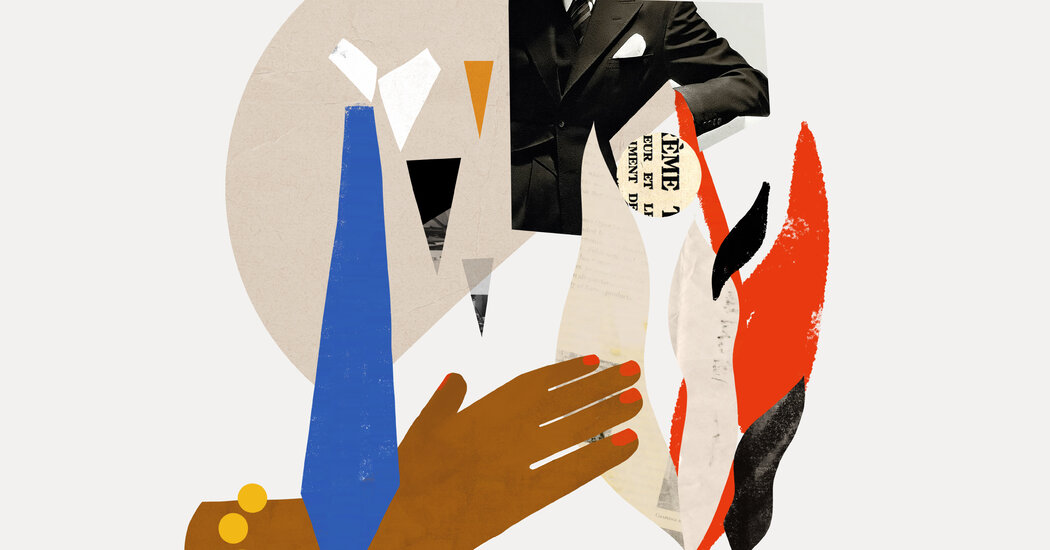Regina Black’s THE ART OF SCANDAL (Grand Central, 292 pp., $28) is a gorgeously soapy debut where a mayor’s wife takes up with a young artist as her marriage goes down in flames. Rachel Abbott’s learns her spouse is cheating during his 40th birthday party, when he texts her a saucy picture clearly meant for someone else. An upcoming Senate run means it’s poor timing for a messy divorce. Rachel’s price is high: “One million dollars,” she tells him. “And the house. I won’t say anything about your affair or file for divorce until the election’s over.”
While she’s wearing the mask of the proper political wife and cozying up to local donors, Rachel comes into the orbit of Nathan Vasquez, an artist and the black sheep of one of the town’s richest families. Their chemistry is off the charts — but chaos also spurs creativity, and both Nathan and Rachel are ravenous for that even more than for sex. They find their better selves through trial and a lot of error.
Speaking of messy people and burn-it-down conflict: In Freya Marske’s A POWER UNBOUND (Tordotcom, 422 pp., $28.99), the conclusion to her Last Binding trilogy, Jack Alston, Lord Hawthorn finally takes center stage. A magician who’s lost his powers and a twin who’s lost his sibling, Jack is cynical, defensive and sharp-tongued with pain. To foil his cousin’s plan to steal all of England’s magic, Jack is forced to work with Alan Ross, a scrappy ex-Catholic journalist skilled in both negating spells and writing incredible queer smut about stern aristocrats disciplining the servants.
This is definitely one to be read as a series: Marske uses the full span of the trilogy to build to a beautiful, devastating conclusion. (Of course, all your blorbos are back for the big magical confrontation between those who crave power and those who defend against its abuses.) Romance runs on undiluted wish fulfillment; sometimes this means give me everything I desire, but other times it means promise me that I can survive the worst.
Rosie Danan’s DO YOUR WORST (Berkley, 334 pp., paperback, $17) has that rarest of tropes: an enemies-to-lovers pairing that is perfectly, lusciously balanced. Clark Edgeware is an archaeologist in disgrace, Riley Rhodes is a curse breaker on the rise, and the infamous Scottish castle they’ve both been hired to investigate is the battleground. Riley is there for the historical artifacts, and it’s truly unfortunate that a man who doesn’t believe in curses is so good at finding ones that just happen to be cursed. This is a very light supernatural, with a sense of the world being wide and wondrous rather than a concrete magical system like Marske’s.
It would be simpler for Riley and Clark to stay enemies if it weren’t for Danan’s signature evocation of horniness — blended here with just a soupçon of pain kink, as a treat. The sexiness is more cutting than her previous two books, with a bright acid pop that brings out the richness.
For sheer defiance, you can’t beat Maria Vale’s MOLLY MOLLOY AND THE ANGEL OF DEATH (Sungrazer, 273 pp., paperback, $14.99) — a weird, adorable stunner of a romance.
Molly is no stranger to Death. He’s taken her parents, her first love, all her relatives. He absently pats her on the back when he shows up in her grandmother’s hospital room and she nearly chokes on an atomic chicken wing.
Only problem is: Molly was supposed to choke to death on that chicken wing, and now she and Death are at odds about whether or not she is meant to continue living. In the course of the argument they forge an unlikely friendship that sidles into profound love.
And Vale turns this somewhat dark premise into an electric, positively slapstick delight. Rebellious, too — Molly has never in her life done what was expected of her. Death is equally terrible at obedience — he’s failed Veneration four times — so it’s no wonder their story pushes back against the rules imposed on it.
One of those rules is the all-important happy ending. It’s a rule romance readers passionately defend, mostly because so many are quick to want to tear it away. As though the bummers of the world are unknown to us, and we need to be instructed.
But rules made for rules’ sake become imprisoning, and sometimes we need romances, like Vale’s, that embrace the truth that we all love people who are bound to die. But this novel a paranormal, so that’s not the whole story. Sometimes the most direct way to defy death is to celebrate the life — and lusts — of the body.


